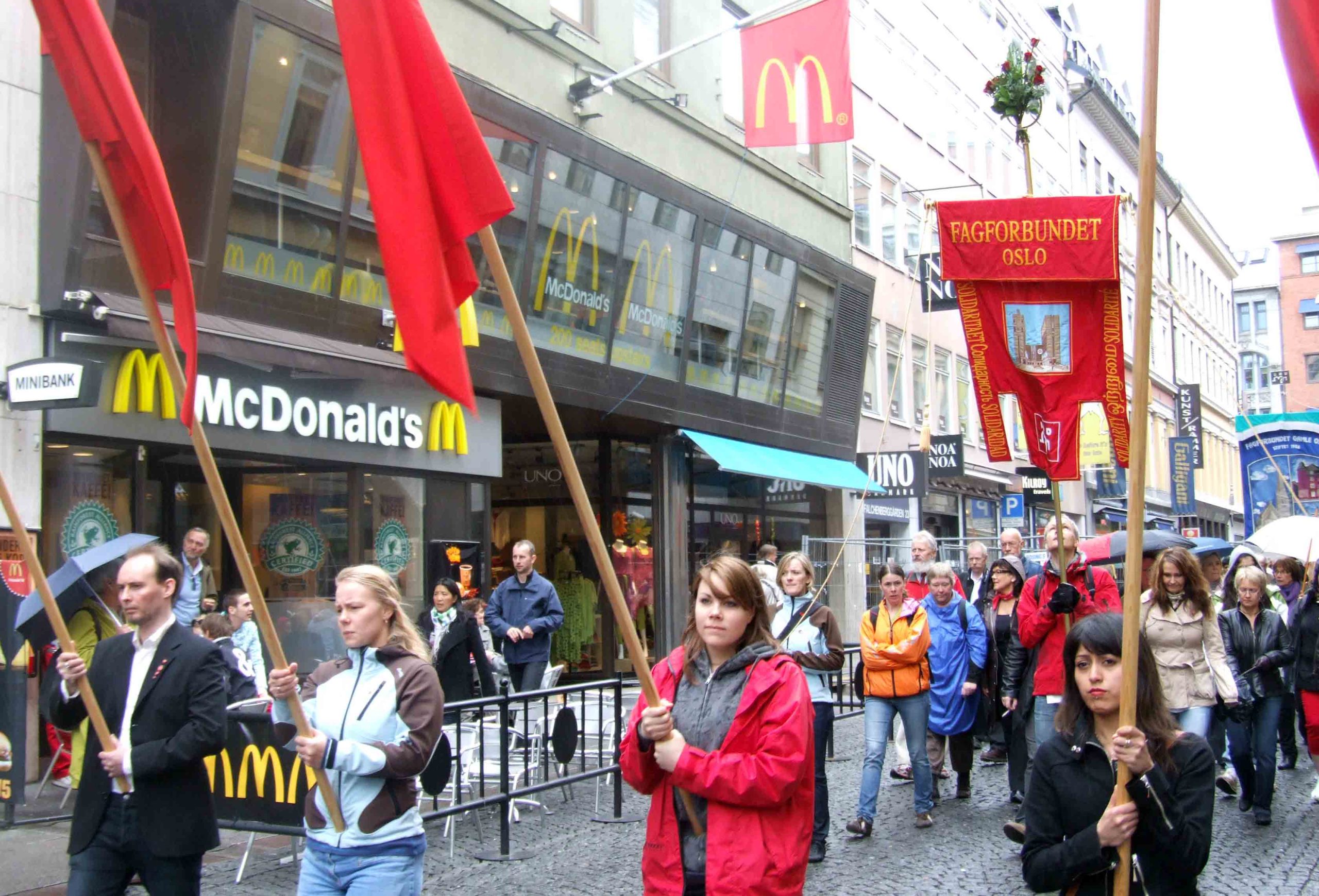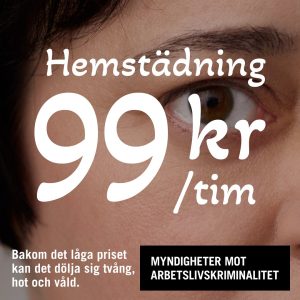Many associate franchising with Mc Donald’s and other fast food
chains. But this business model is spreading fast. Anything from
airlines to undertakers can be run as franchises.
Ten years ago there were 182 franchises in Norway, run by 7,520
franchisees. Today there are 300 franchises and 20,000 franchisees.
These businesses employ at least 70,000 people, according to De Facto,
a knowledgebase for union members, which has studied franchising in
Norwegian retailing.
“So far only three per cent of the Norwegian workforce works in
franchises. But that number has doubled in five years. In the US the
number is ten per cent”, says Roar Eilertsen, author of the study
alongside Stein Stugu.
A threat to the Nordic model
They say franchising is a threat to the Nordic model, where trade
unions and employers negotiate the terms for how the labour market
should work, rather than relying on legislation. This model would not
work without strong trade unions. “The number of union members within
franchises is extremely low. Employees and their organisations have
been stripped of all rights when it comes to influence and
representation in relation to the owner of the franchise concept – who
hold nearly all power within the franchise system”, reads the De Facto
study ‘Power without responsibility – responsibility without
power’.
“If we don’t take drastic action we will gradually get a two-tier
labour market”, says Roar Eilertsen.
“One with trade unions and normal employee rights, and one without.
This will lead to increased pressure on those parts of the labour
market which continue to regulate through mutual
settlements.”
In a franchise, the most important factor is the signed agreement.
The franchisor has developed a business model and a brand which the
franchisee – after agreeing a fee – can use. The franchisor often owns
the property from where the business is run, and the franchisee
normally has to buy the stock needed from the franchisor. Often the
franchisor even looks after the franchisee’s finances.
Co-operative franchise?
Because each franchise can comprise hundreds of businesses, its size
makes it difficult for independent businesses in the same trade to
survive. The Norwegian retail industry is dominated by four major
chains, which own 98 per cent of all shops.
All except Coop, which belongs to the co-operative, are run more or
less as franchises. It is probably only a question of time before
Norway’s Coop also turns to franchising – in Sweden some 30 Coop stores
are already being run as franchises.
The franchising of a business makes it more difficult to carry out
trade union work. The franchisee is employer to those who work there,
but he or she has little influence over their terms of employment. The
real power rests with the owner of the franchise concept, whom the
employees have no chance to influence.
“Franchises have turned into an unregulated ‘free-zone’, where the
franchisee works as a buffer between the employees and those who have
the real economic control”, says Roar Eilertsen.
No legislation on franchising
There is no legislation in Norway today which regulates franchising
– unlike in the US and France. Sweden introduced a law on franchising
in 2006. Like in other countries, the Swedish legislation mostly
concerns what information the franchisor must provide to the
franchisee. There is nothing about the rights of franchise
employees.
Norwegian retail industry employees are organised through the trade
union Handel og Kontor (Retail and Office Work) 70 per cent of workers
in the shops owned directly by the four, big retail chains enjoy
collective labour agreements. In franchise shops, the number drops to
39 per cent. For a trade union in Norway to be able to demand the
acceptance of a collective labour agreement, any business with more
than 25 employees must have at least a 10 per cent trade union
membership rate.
“There is also the unwritten rule that we don’t demand a collective
labour agreement if we have trade union membership lower than 30 per
cent in workplaces with less than ten employees”, says Margit Glomm,
chief negotiator at Handel og Kontor.
Legal quest
Handel og Kontor welcomes franchisees as union members.
“We have for a long time tried to legally determine whether a
franchisee can be considered an employee, but no-one has so far wanted
to go to court over this”, says Margit Glomm.
The union is now studying the De Facto publication.
“One of our suggestions is to give employees the same rights as
employees in groups of companies, who are represented in the boardroom
of the mother company. We also suggest the right for employees to meet
and discuss trade union matters during working hours and at the cost of
the employer”, says Roar Eilertsen.






